Listen above or: TODT App / iTunes / Spotify (Tap the subscribe button – it’s free and keeps you updated!)
Today’s Guest
Susan Thixton:
I’m so excited to introduce to you today’s guest, Susan Thixon, an incredible pet food advocate who’s working hard to help keep animals safe at meal time.
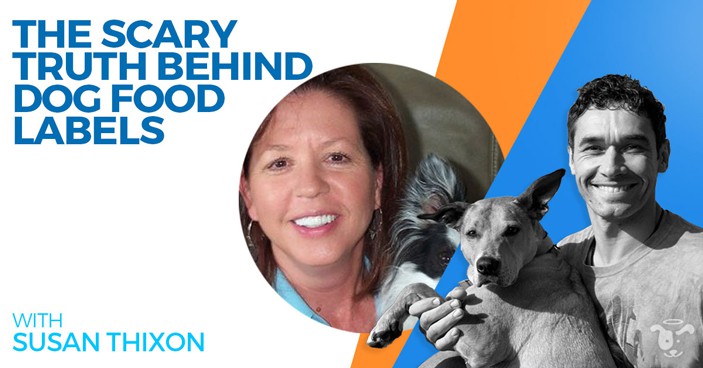
Unfortunately, Susan’s work started due to the loss of her beloved pup who developed cancer after eating food that was designed to be able to stay on shelves for 30 years. This tragic incident fueled Susan’s passion for doing her best to help provide the public with insight into what their dogs are actually eating.
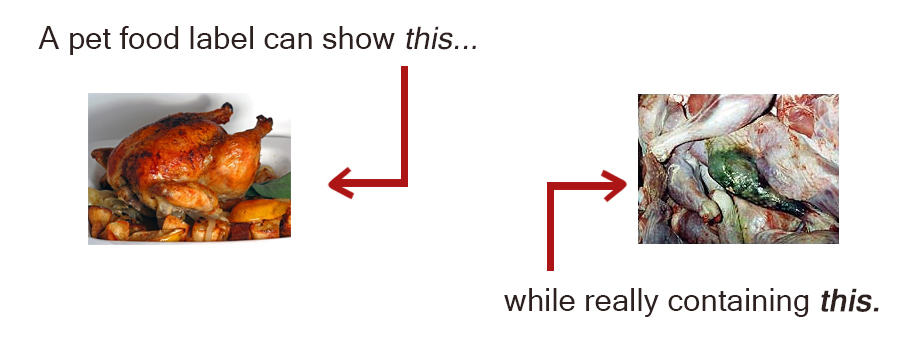
During this podcast episode, Susan and I share a few fascinating stories regarding pet food, and, Susan provides incredibly helpful insight into how pet parents can determine what foods are safe to give their furbabies.
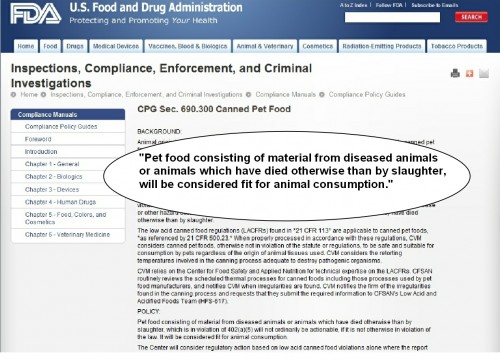
If you’re curious about whether your pet food makes the cut, this is a podcast you don’t want to miss!
You’ll Hear About
- [01:00] Who is Susan Thixtson
- [02:10] Susan’s Story
- [06:00] The Dangers of Ethoxyquin
- [07:00] Pet food Industry Tricks
- [07:50] Decomposed Meat Secrets
- [10:00] The Dangers of Bacteria
- [13:00] Susan’s Biggest Pet Food Concerns
- [20:30] What Can Consumers Do to Ensure Safety?
- [23:00] Doggy Dan’s Story
- [26:00] Resources for Pet Food Education
- [32:30] Susan’s Resources
How You Can Get Involved
Visit Susan’s websites to find out what’s really in the food you’re feeding your pets, and support her vital work by subscribing to Susan’s Petsumer Report.
Learn about the laws governing pet food in your country.
Consider switching to a natural raw diet.
Supplement any processed diet with eggs, fish, mince, raw meaty bones and organs.
Links & Resources
- Website: https://truthaboutpetfood.com
- Website: https://www.petsumerreport.com
- Facebook: https://www.facebook.com/TruthaboutPetFood
- Twitter: https://twitter.com/TAPF
- YouTube: https://www.youtube.com/channel/UC0p3KKhy7epJJyc2avWZjvQ
- Pet Fooled Docufilm Trailer: https://www.youtube.com/watch?v=h3hMjQD5T9c
Learn more by tuning into the podcast!
Thanks for listening—and again, don’t forget to subscribe to the show on TODT App / iTunes / Spotify to get automatic updates.
Cheers,

~Doggy Dan
|
Susan Thixton: (00:00) |
I consider myself a pet owner and a pet owner that experienced a pet food killing my pet. And it literally changed my life. My dog, who was my best friend, she had a tumor show up on her pelvic bone almost overnight and took her to my vet. He said this tumor was cancer. And I had about two weeks to tell her goodbye and that the cancer was more than likely caused by a chemical preservative that is commonly used in pet foods. |
|
Voiceover: (00:38) |
Welcome to the Doggy Dan Podcast Show, helping you unleash the greatness within your dog. |
|
Doggy Dan: (00:50) |
Hello and welcome everybody to another Doggy Dan Podcast and today I have Susan Thixton with me. Susan is a pet food consumer advocate, and she's one of just a handful of advocates in the US that fights to hold the pet food industry accountable to existing food safety regulations. So she's the founder of Association for Truth in Pet Food, which is a pet food consumer stakeholder organization, which represents the consumer voice at regulatory meetings. Susan is also the author and coauthor of several books. The publisher of the website, truthaboutpetfood.com, petsumerreport.com and association for truth in pet food. And I've had a look at the sites and they are fantastic. So Susan, welcome. Thank you for joining us today. It's really cool to have you with us. |
|
Susan Thixton: (01:44) |
Well, thank you for having me. |
|
Doggy Dan: (01:46) |
It's our pleasure. So I love your websites. I've watched a lot of the videos on them, but I always like to just hand over to you. Tell us a little bit about yourself in your own words, where you've come from, what you do, just to give the audience a little bit of perspective on where you're coming from. |
|
Susan Thixton: (02:10) |
I consider myself a pet owner and a pet owner that experienced a pet food killing my pet, and it literally changed my life. It changed the direction of my life. And it's been 30 some odd years ago in the early 1990s, my dog and I was a dog trainer at the time, ran a boarding and training facility. And my dog, who was my best friend, my business partner, she had a tumor show up on her pelvic bone almost overnight, and took her to my vet who this vet knew more about pet food back then than most veterinarians do today. He said this tumor was cancer and I had about two weeks to tell her goodbye. And that the cancer was more than likely caused by a chemical preservatives that is commonly used in pet foods. And back then, I didn't know what a chemical preservative was. |
|
Susan Thixton: (03:20) |
My vet explained that it was too used in pet foods to extend the shelf life. I didn't know what shelf life was, but I was so devastated that I called the pet food manufacturer. This was my first phone call to a pet food company. And I asked them how long the food would stay fresh. And they very proudly told me this dog food would stay fresh for 30 years. Those words changed everything for me, that and telling my dog goodbye. It was just life altering. And that particular vet gave, this was before the internet, really dating myself. That vet loaned me books to read, and when the internet, everyone had access to the internet, you could access papers and the law, I tend to focus more on the legal aspects of pet food. What is law? What laws are not abided by? So forth. And one thing led to another. Some friends challenged me to start the website, and I started Truth about Pet Food in 2006. And here we are today, still battling for law to be enforced and for transparency for the consumer |
|
Doggy Dan: (04:59) |
Dog food that will last and quote "stay fresh" for 30 years. I mean, I watched the movie Pet Fooled and I still, those words stuck with me. And that's your quote that's on there, I believe. Is that right? |
|
Susan Thixton: (05:13) |
Yes, yeah. |
|
Doggy Dan: (05:14) |
Yeah. That story was just incredible. I remember going what? |
|
Susan Thixton: (05:19) |
I can remember that conversation as if it was yesterday. It was horrible. |
|
Doggy Dan: (05:25) |
I mean, just for people who are listening, what we're saying is the food that Susan was inquiring about will stay, I mean, they say fresh. I'm sure it's not fresh. It's just, it's deemed fit for dogs for 30 years. I mean, I repeated that to so many of my friends. I said, what lasts 30 years? Bread doesn't last 30 years, no potatoes, no vegetables. Meat won't last 30 years. Flour would go off before 30 years. I mean, even the paper cup would probably disintegrate within 30 years. So what is it that's in that food? Can you tell us what these preservatives actually are? |
|
Susan Thixton: (06:03) |
The preservative that was used that is linked to cancer in dogs and cats is ethoxyquin, and it's spelled E-T-H-O-X-Y-Q-U-I-N, I believe. Ethoxyquin is still used to this day in pet food. You'll see it sometimes on the label in the ingredient list, but worse yet some ingredients are preserved with it. A common one that is preserved with ethoxyquin is fish meal. So if your pet food has a fish meal, any kind of meal ingredient, chicken meal, beef meal, lamb meal, they can all be preserved with ethoxyquin. And it's a bad chemical. |
|
Doggy Dan: (06:77) |
And this is where I think you've reminded me of a very clever trick. If this is true, then I think this just sums up how tricky it all gets. If the fish meal is preserved in ethoxyquin before it's delivered to the manufacturer, they don't have to announce that it's got ethoxyquin in. Is that correct? |
|
Susan Thixton: (07:19) |
That is correct. They do not have to disclose. The manufacturer did not add it. So the manufacturer does not have to disclose it to the consumer. |
|
Doggy Dan: (07:30) |
So you see how tricky this everybody is. If something's got a really bad product in it, the way to get around it is to ask the people who are supplying the ingredients to do it first. And then they don't have to announce that they've got it in the food. How tricky? How deceitful? I mean, that's just deceitful beyond words for me. |
|
Susan Thixton: (07:48) |
It is. Yes. And it's one of many deceitful things about this industry. In the US, pet food, the FDA. FDA is the ultimate regulatory authority over pet food and the FDA openly allows pet foods to contain illegal adulterated ingredients. And I'm going to warn listeners. I'm going to get a little graphic here. A cow dies in the field and lays there decomposing for three days. A truck comes and picks up that decomposing carcass. That carcass is ground and sold to pet food with no disclosure to the consumer whatsoever. And it can be sold to the consumer with a picture of a beautiful steak on the label. In the US, I just did a post on this, 159,000 pounds of condemned carcasses. Now, this is a step up from the decomposing carcass out in a field. 159 million, excuse me. 159 million pounds of condemned carcasses. So these are cattle, hogs, chickens, turkeys that were slaughtered, but the animals were diseased. So they were condemned, deemed unfit for human consumption. All of those are allowed into pet food with no disclosure to the consumer. |
|
Doggy Dan: (09:43) |
It's very concerning because of course there may be a lot of the chicken and a lot of the food that the dead animals' carcasses may be fit for... And maybe healthy enough for dogs to eat, but the concern, I guess, I'm thinking is it may be that they died of a pretty bad disease that you don't want going back into the dog food. I mean, that's what I'm thinking iis. |
|
Susan Thixton: (10:08) |
And another issue is these ingredients are not required. None of the manufacturing safety procedures that apply to human food are applied to pet food. And one of the big safety features is ingredients to be stored and transported under refrigeration. Well, when you have meats, fats that are transported and stored without refrigeration, they start to decompose, bacteria levels escalate in there. The FDA thinks, well, if we just cook this material, we're killing the bacteria. Well, but there's another huge problem and it's called endotoxins. Some bacteria, as example, salmonella and e. coli, they are gram negative bacteria. And when there is a kill step for that bacteria such as cooking the meat loaded with this bacteria, these gram negative bacterias produce a toxin called an endotoxin. And live bacteria isn't as much of a risk to our pets as it is to us, but the dead bacteria, the toxins, the endotoxins is a huge risk. |
|
Susan Thixton: (11:43) |
And nobody tests these pet foods for levels of endotoxins. It's just a massive problem. There's one thing after another, after another, that is hidden from pet owners. So what it all boils down to, I could go on for days about all the bad things is that they're not all bad, but you have to do your homework. You have to learn if this manufacturer is using USDA inspected and passed edible ingredients. Meat, everything else, all other ingredients, if they are human grade ingredients. So you've got to ask the manufacturer questions. Are these meat ingredients transported and warehoused under refrigeration? How often is the food tested? So you just keep asking questions of the manufacturer. You're trusting your pet's and life with this food. So you've got to ask a lot of questions. |
|
Doggy Dan: (12:52) |
Fascinating. So can you tell us, I'm interested in kind of going down the rabbit hole a little bit more in terms of your concerns before we start looking at solutions. So what are the other concerns? What are your other biggest concerns that you have about the pet food industry or dog food in particular? What are the tricks are there that are going on that consumers may be completely unaware of? |
|
Susan Thixton: (13:20) |
Well, the biggest to me is that we are... pet owners are not told any quality of ingredients. If you are buying a pet food, like those a hundred, almost 60 million pounds of condemned, diseased animal carcasses, we're not paying for someone else's garbage. And we should not have to become a private investigator and have to trace this down if we're paying our money for this product, a product that's termed a food. So that is the biggest thing is, is lack of transparency to the quality of ingredients. There is also an issue of lack of transparency of the laws. So all of the laws and lack of consumer input and considerations for the laws. Consumers for years have wanted carbohydrate information on pet food labels. And a few companies are providing that voluntarily, but we still don't have that in regulation yet. |
|
Susan Thixton: (14:40) |
So it's how much salt is in a pet food. There's so many different things and all of those laws are hidden from consumers. If you want to research the laws on your food, you can read until your eyes are crossed. They're all on the internet, they're all free for the public to access and read. The same is not true for pet food regulations. And like just the simple term with, you've seen labels that said, brand XYZ, dog food with chicken. Well, the with means that that pet food is required to contain 3%, a minimum of 3% chicken. And I think it's an 18 pound bag. The minimum is like eight ounces, in an 18 pound bag of dog food. Only eight ounces of chicken. |
|
Doggy Dan: (15:54) |
And I guess that doesn't even have to be chicken meat, does it? It could be chicken anything. |
|
Susan Thixton: (15:58) |
That is correct. Every ingredient and pet food has its own legal definition, which is very different from the same food in humans, human food. So chicken can be condemned chicken. It can be edible, USDA inspected and passed chicken. It can be chicken meat. It can be chicken skin, no meat. It can be chicken bones, no meat. So that eight ounces of chicken that you're getting, you don't even know what that is. And another problem is that veterinarians are denied access to all of this stuff. We need more veterinarians to be on the consumer side, to be appalled that non-slaughtered animals and condemned animals are dumped, disposed of into pet food, that we don't have access to these laws. But because they don't know, they don't have access to the laws either, I think that then they tend to believe their sales reps, their big pet feed sales reps, more than us, more than their clients. And I think we need more vets to stand alongside with us. |
|
Doggy Dan: (17:24) |
Yeah. I think what you've touched on there is the, almost the levels of deceit and the deliberate kind of... Almost feels like the deliberate manipulation of the truth and the lack of transparency just, it just leaves the owner... It's just so hard to really get any idea of what's in the dog food. And I think the bit that you've touched on there is it's just that we would like to have the choice of knowing, is this real chicken meat and what percentage, and was it fresh meat or was it dead? Was it dead and dying or is it bones and whatever. But we want to know so that we don't end up paying the top, top price. And I know this kind of happens, you pay top, top dollar and you're actually not getting top, top food for our dogs. |
|
Susan Thixton: (18:16) |
Yeah, we have no idea that in the US again, pet foods, if the label, you cannot take with any faith any claims made on a pet food website. They might be truthful, they might not be truthful. But the label, if you see the words human grade on the pet food label, labels are validated, the words on labels, not images, but the words on labels are validated by regulatory authorities. And if you see those words, human grade on the pet food label, then that means that dog or cat food includes a hundred percent, no exception, all human edible ingredients and human edible supplements, and that it was manufactured per human food safety standards. So pet food has different manufacturing standards and a good example, which would never be allowed in human food, the FDA did an inspection, this was a follow-up inspection. I believe it was in 2017, 2018 of a mass pet care facility. And this facility had a recall. |
|
Susan Thixton: (19:42) |
And then this was a year later, they did a follow up inspection. And they noted, quote, "millions of roaches in the food production area." And there was no follow up recall to that. FDA did nothing. They did absolutely nothing. It was just accepted that this manufacturing facility, pet food, food manufacturing facility was contaminated with roaches. And it didn't matter because it was going to pets. |
|
Doggy Dan: (20:20) |
Wow. Staggering, isn't it. So one of the things... I'm curious, what are the things, the simple things that people can do to either find out from a website or a book what the good food is or what words? I mean, you've mentioned the word human grade is a great... If you have the words human grade, that's a big plus. What else can people do? What are the things that you'd recommend people do to start moving towards ensuring the dogs are getting good food? |
|
Susan Thixton: (20:49) |
I would suggest every pet owner to email or call and that kind of like to have it personally in writing versus in a phone conversation, just so you have that evidence and hold on to that email. But ask them, ask your manufacturer if ingredients are human edible, if supplements are human edible. Ask them the country of origin of all ingredients, and then ask them how often the manufacturer tests incoming ingredients and the finished pet food. And a perfect example of it really... The manufacturers need to test their incoming ingredients is Science Diet. They had a massive recall for excess vitamin D that, had the company tested incoming ingredients, would have never happened. So we need, yes, testing is expensive, but the larger the brand, there is no excuse. Absolutely no excuse for them not to test every incoming shipment of ingredients and every batch going out the door. |
|
Doggy Dan: (22:20) |
Yap. Because I mean that's, at the end of the day, food in... The food coming in if you test that and you test the food going out, then it's going to be pretty good. |
|
Susan Thixton: (22:30) |
Yes. Yeah. Absolutely. Yeah. No, they're going to still be manufacturing errors, but that would be caught in testing it before it was shipped out. And a lot of, even a lot of smaller manufacturers, it's really amazing how much testing they do. And that's wonderful. We need them. Again, we're trusting our pets' lives with this company. So we need them to step up and do everything they can to assure us that this is a safe product. |
|
Doggy Dan: (23:06) |
I have my own personal story, which I want to throw in here, because you've heard it a hundred times, but just to give consumers an idea of just how real this is. We had a cat. Some of you who follow me in my dog training program, may have seen my dear cat named [Boujar 00:23:23]. He was a ginger cat. And he got very, very sick and was... He was clearly dying and my wife was actually not very well. She was in bed crying at the time saying, take the cat to the vet. He's going to die. And we'd already taken him to our usual vet who'd done the blood tests and said he had leukemia, needed cancer treatment for two or $3000. But we were very suspicious. It just did not feel like that. He wasn't eating properly. He was kind of throwing his food up and he was... All his hair was falling out. |
|
Doggy Dan: (23:55) |
So I decided to take him to another vet a bit further away. It was a long drive. And the problem was Boujar also was sick when he was in the car. So it was always going to be a horrible journey. But I did, it took them to this other vet. This other vet, I kid you not, he put his hand on my cat. He ran his hand down the cat. He took one look at him and he said, and he just said, "Well, his hair's falling out. I can tell you now it's the food you're feeding him." And I just said, "Really?" He said, "Yap." He said, "What are you feeding him?" And I told him. And it was one of the quote, unquote, best brands available. One of the biggest in the world, sort of. One of these large multinational dog and cat food companies. I was feeding him the best. |
|
Doggy Dan: (24:36) |
And he said, "Yep, that'll do it." I said, “What do you mean?" He said, "Well, that's got a preservative in it, which will kill your cat and dog. It's banned from the human food chain, but they're still allowed to put it in the cat and dog food." I said, "Really?" He says, "Yeah, that's all it is." He said, "Take these little pills." And he gave me some little pills. He said, "Feed your cat and put him on chicken and rice and give me a ring in two days. I thought, two days, this cat's going to take weeks to recover. If he's alive in two days, I'll be happy. Anyway, I took him home and... Just before I left, I said, well, what about the leukemia? And he looked at me and he said, your cat does not have leukemia. I kid you not, two days later, this cat had doubled in white. |
|
Doggy Dan: (25:18) |
All of the fur started growing and the vet also said that the reason he's sick is because he can't eat because all his hair's falling out. He's licking himself. He's got a furball stuck in his belly from all of this. That's why he can't eat. Two days later, he doubled in white. This cat lived for another 10 years. |
|
Susan Thixton: (25:36) |
Oh, wow. |
|
Doggy Dan: (25:37) |
And guess who was feeding me the... giving me the dog food, the cat food? It was the same vet who said he had cancer. I was buying the very food that was killing my cat from the same vet who was going to then do cancer treatment when really it was this, the cat food. And I spoke to people about this and a number of people who've had similar experiences or not realized whether it's tumors from the dogs. And a lot of them are selling the big-branded dog food. And I've got no doubt, yep. |
|
Susan Thixton: (26:10) |
Well, so much of it is waste ingredients and you are what you eat. And we cannot expect these animals to eat recycled garbage, and expect them to thrive. |
|
Doggy Dan: (26:25) |
It's not going to happen. |
|
Susan Thixton: (26:29) |
That's an amazing story. Thank you for sharing that. |
|
Doggy Dan: (26:31) |
Oh yeah. Well, it was a beautiful vet, a beautiful vet. Very, very amazing holistic vet here in New Zealand. Now, could you tell us, is there a website? I know you've got a couple of beautiful websites. Where would you suggest people go if they're going, how can I maybe, I don't know, find out whether my vet, my dog foods are good dog food, or is there a place like that you could recommend? Or how can I learn more from? Which website would you recommend they start moving towards? |
|
Susan Thixton: (26:58) |
Well, I always encourage pet owners to educate themselves on the laws in your country. So wherever your listeners are at, learn the laws in your country that regulate pet food. That gives you a foundation to then know if your product is abiding by law or if they're not. So educate yourself as much as possible. For pet owners in the US, we have... I take pet food consumers. I'm solely supported by pet food consumers. And I have two different products that I sell to support the work that I do. And one is a pet food review, publication, Petsumer Report. And it's petsumerreport.com. Now that is strictly for pet food sold in the US. |
|
Susan Thixton: (27:56) |
But there's lots of different places. Following different people. I'm not the last word in pet food by any means, so follow different people. Dr. Karen Becker is great. Rodney Habib, Dr. Judy Morgan, Dr. Laurie Coger. There's a lot of people, follow to continue your education. And you don't have to read everything that they put out, but you can read some, and every bit you learn, you're in a much better position to protect your pet and to sift through all the marketing and find your pet a healthy food. |
|
Doggy Dan: (28:42) |
That's brilliant. We'll put all the links that we can on this podcast. We'll write it all up and have all the links there. So anyone who's thinking I'm driving and I wished I'd grabbed that URL, whether it was the petsumerreport.com or any of the names mentioned. We'll get all those written up. That's really, really great to have that information. And I believe you, you've got a couple of books you've been involved with. Can you tell us a little bit about those? |
|
Susan Thixton: (29:10) |
Well, they're not in print anymore, but I've taken them down. Buyer Beware was a book. I need to do another one and I just haven't had the time about the regulation or lack of regulation of pet food. And then myself and a veterinarian did a pet food Cookbook, which we don't have up anymore either. And that's another way. Don't ever hesitate, think you're incapable of preparing your own pet's food, then you're going to know exactly how safe it is because you bought all the ingredients. Just make sure you follow a good recipe. And there again, Rodney Habib and Dr. Karen Becker have some wonderful recipes. Dr. Judy Morgan has some recipes. So as long as you get a good recipe that is complete and balanced, provides all the nutrition. And you can do it all through food, that's how our cookbook was. It was providing all the nutrition through food, not having to add supplements. |
|
Doggy Dan: (30:25) |
Brilliant, brilliant. Well, Susan, is there anything else you'd like to add before we wrap this up in terms of something that you'd like to share a story or tell us about your plans? Anything else you'd like to encourage the listeners to do? It's been absolutely fantastic chatting with you, and it's got me all motivated again. |
|
Susan Thixton: (30:45) |
I always encourage pet owners to, well, two things, to pay it forward. Just like what you did, sharing your story, if you've had a good experience, and you've learned something, share that with another pet owner. We are grassroots. We are trying to save other pet owners from learning lessons the hard way mine was a lesson learned the hard way with the death of my pet. And the other is to speak up. To write your elected officials, to demand that law be enforced with pet food and transparency and labels. Often I will write about different issues and I ask pet owners to write their representatives or write their regulatory authorities. And I'll even give an example, email. All they have to do is copy it and paste it into an email. And that really helps a lot. The more voices, the more we all stand up together and become a louder voice for all of our pets. It's not just my pets. It's not just your pets. We're all in this together. And so the more we speak out about it is helpful. |
|
Doggy Dan: (32:22) |
That's brilliant. That's brilliant. So that website again, was petsumerreport.com. And so if you're interested in finding out more, then maybe start there, or TruthaboutPetFood.com. Susan, it has been an absolute pleasure chatting to you. I can tell you know a lot about what you're talking about. It's incredible. I love chatting to people who know their stuff. I feel like we could chat for hours. |
|
Susan Thixton: (32:53) |
Well, thank you for having me. |
|
Doggy Dan: (32:55) |
Yeah, it's my pleasure. And so for those of you who want to know more, you can go to any of those websites or go to theonlinedogtrainer.com/petsumerreport, and all the links and details will be there. All right, everybody. Well, thank you for listening and love your dog. |
|
Voiceover: (33:16) |
You've been listening to another episode of the Doggy Dan Podcast Show, bringing you one step closer to creating harmony with your dog. |
Sign up to receive email updates
Enter your name and email address below and I'll send you periodic updates about the podcast.


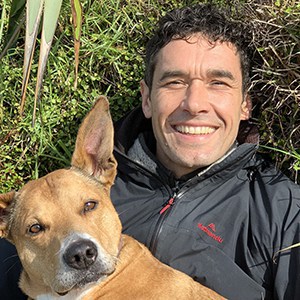



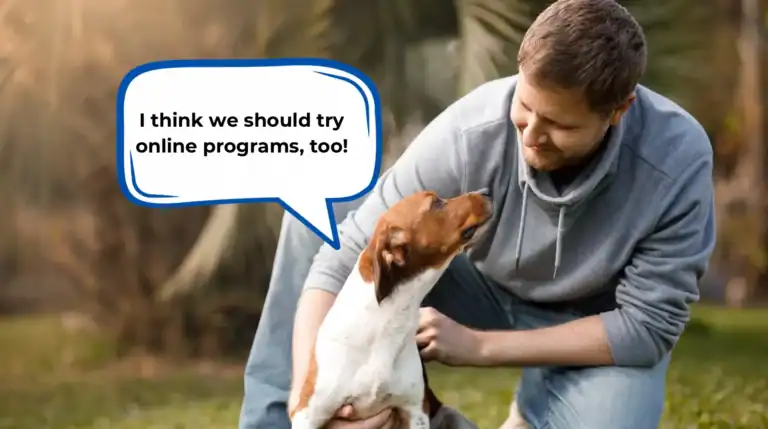
2 Responses
it is good to know that there are people [dog-owner] who tried their best to protect us dog owners against the fraud of food dog manufacturers, God bless us all dog-owners.
I’m happy you enjoyed this one Henry! It definitely pays to be informed as dog owners. All the Best, Doggy Dan